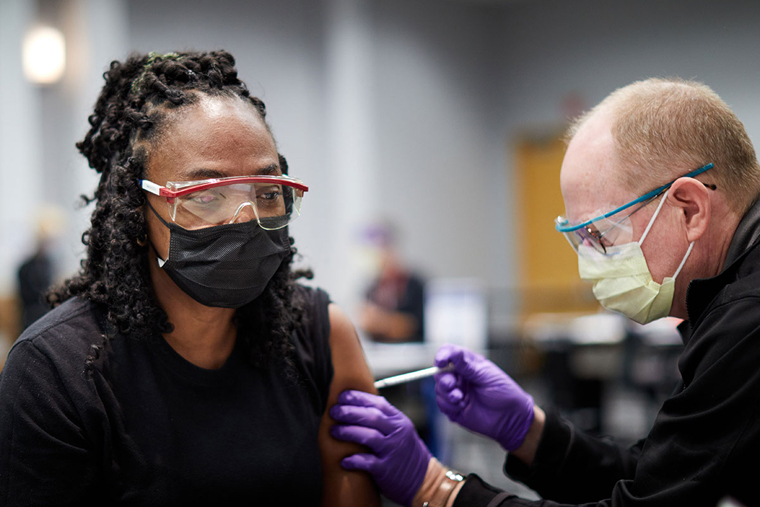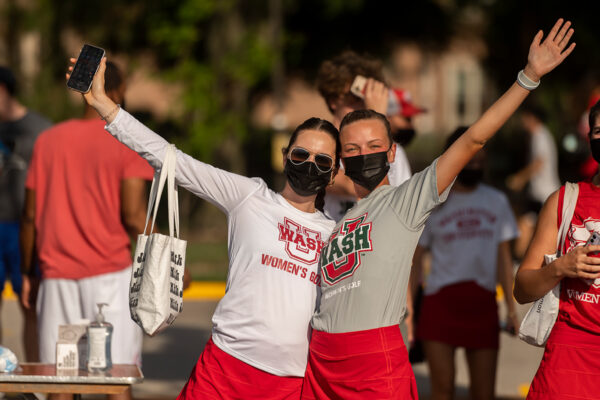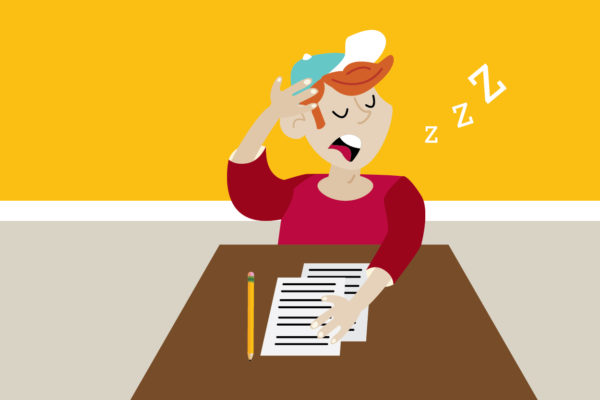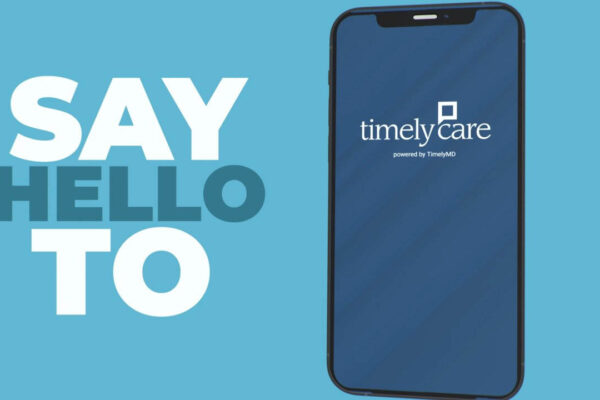Many Washington University in St. Louis students, staff and faculty are now eligible for a COVID-19 booster.
But should we? Must we? And what are the side effects?
Here, Steven Lawrence, MD, professor of medicine and an infectious disease specialist at the School of Medicine, and Cheri LeBlanc, MD, executive director of the Habif Health & Wellness Center on the Danforth Campus and assistant professor of medicine, explain how boosters work, why the university is not requiring boosters at this time and the outlook for COVID on campus.
The CDC has declared boosters shots are now available for some COVID-19 vaccine recipients. What is the biggest question you are hearing?
LeBlanc: A lot of people who have received the Johnson & Johnson vaccine want to know what type of booster they should receive. It is certainly safe to get a Moderna or a Pfizer vaccine as a booster. It’s also very safe to get another J&J. The studies show that mixing the J&J vaccine with an mRNA vaccine (Pfizer or Moderna) boosts the antibody levels that your body produces to a much higher level than if you got another J&J. But what we don’t know is if that level of antibody boost is necessary to make a significant difference. A mRNA booster probably means a little better protection but a second J&J is still very adequate to provide very high levels of protection.
Will boosters prevent breakthrough cases?
Lawrence: The vaccines are already protecting people from severe breakthrough cases and hospitalization. But yes, boosters will decrease the number of mild breakthrough cases. And that’s not nothing because if you get mild symptomatic disease, you can still transmit to others and be out for 10 days.
Will the university require a booster shot?
Lawrence: Not now. Let’s look at why we implemented the vaccine requirement in the first place. Our goals are to protect individuals from getting sick or dying and to protect the university community at large. So when we already have very high levels of protection, we don’t need to require boosters because it’s not necessary to accomplish those goals. At some point in time the CDC may require a booster to be fully vaccinated. But that’s not the case right now and so to require a booster would be heavy-handed. That said, employees and students who do get boosters should upload that documentation to ReadySet and the student health portal respectively so that we have that information if ever needed.
How can people expect to feel after they get their booster?
Lawrence: Every individual is different, but for most people, the severity of the symptoms after a third dose is almost exactly the same as the second dose for the mRNA vaccine. There’s less data on J&J boosters. Because there’s no urgency to get your booster, schedule it at a time when you don’t have anything important in the next day or two.
There has been a recent uptick in COVID cases among students. What’s going on?
LeBlanc: We did expect a bump after fall break because a lot of people were in situations where they could be at higher risk. Fortunately, all of the students who have contracted COVID have had a mild illness. And no known transmission has occurred at regulated activities in classrooms, the rec center, the library, etc. We closely track data related to every positive case, specifically the type of vaccine and when the last shot was given. We have not seen anything that would indicate waning immunity over time or that there is a vaccine that is not effective. This is mostly students getting together and being unmasked indoors.
And now we’re entering flu season. Despite the flu vaccine, many of us will still get sick. How do you distinguish between flu and COVID?
LeBlanc: It’s difficult to distinguish between flu and COVID without a test, so we are encouraging students to come in and get tested. For COVID, we are very stringent about telling people that they have to isolate and not come to class. For flu, we’ve always told students to stay in their room and not come to class until they’ve had 24 hours without a fever and are beginning to feel better. Along with COVID and concussions, it’s one of the few things we will give a note for.
Of course, faculty and staff should also stay home for flu. We saw last year how incredibly effective masking is at preventing flu. However mask wearing has dropped dramatically in the community. So there will unequivocally be more flu in the community this year.
The region’s COVID numbers are trending in the right direction. Any chance we’ll be able to toss our masks soon?
Lawrence: While the delta wave is slowly declining because of the natural dynamics of an epidemic, it is very possible that will be counteracted by colder temperatures — the virus lives longer in the colder, drier conditions, and more people will be gathering indoors. So it would not be surprising if COVID rates flatten or potentially even climb back up again. And then we have winter break, when people will be gone for many weeks and participating in activities that may be higher risk. So as long as the St. Louis County Department of Public Health has a mask requirement and transmission rates are high, as defined by the CDC, I would not expect widespread relaxation in masking requirements. We are, however, cautiously optimistic that when transmission rates both on campus and in the region further slow, we may be able to relax some mask requirements next semester.




Comments and respectful dialogue are encouraged, but content will be moderated. Please, no personal attacks, obscenity or profanity, selling of commercial products, or endorsements of political candidates or positions. We reserve the right to remove any inappropriate comments. We also cannot address individual medical concerns or provide medical advice in this forum.